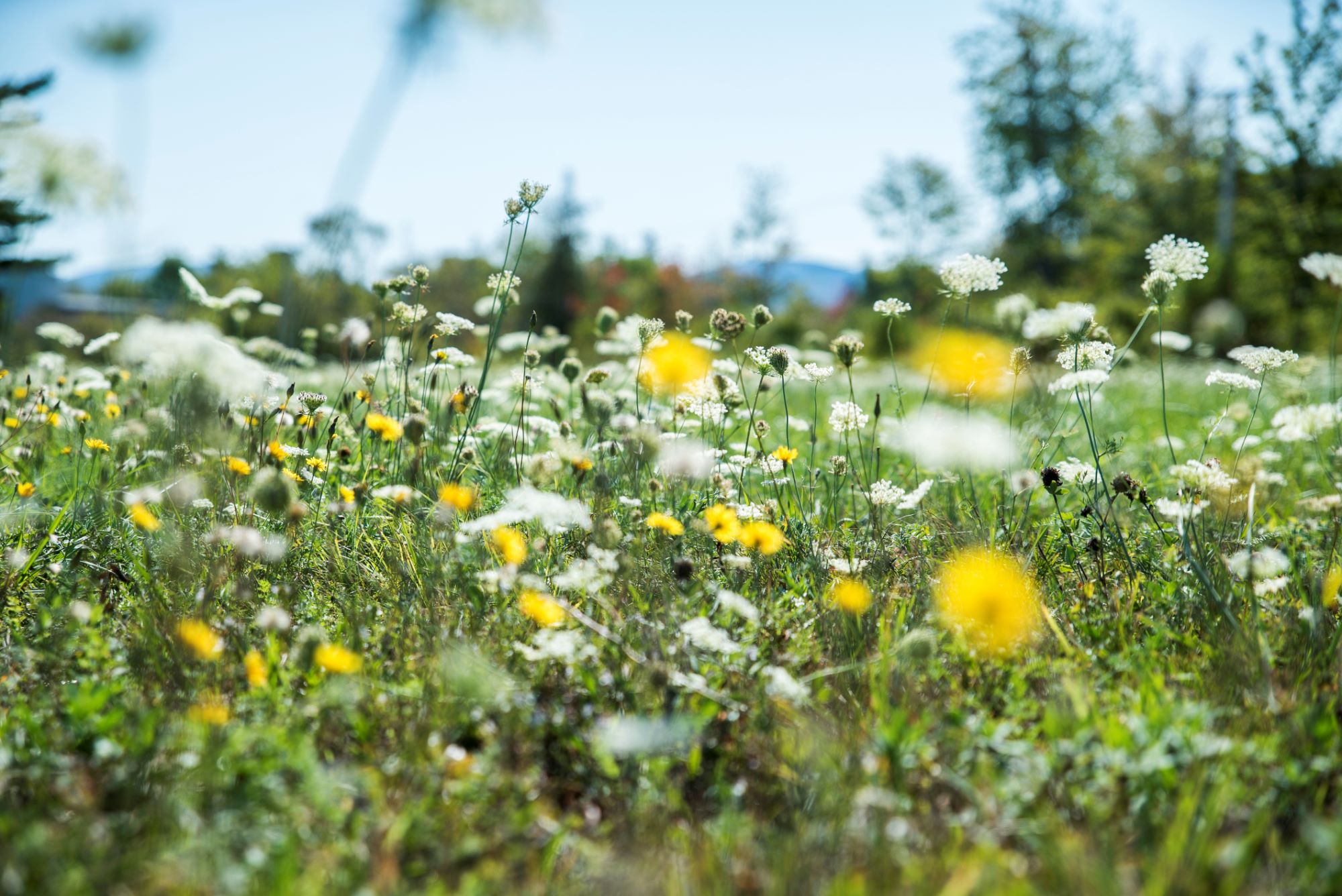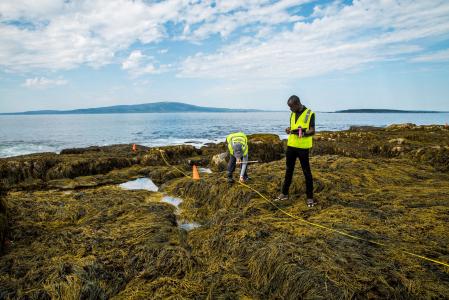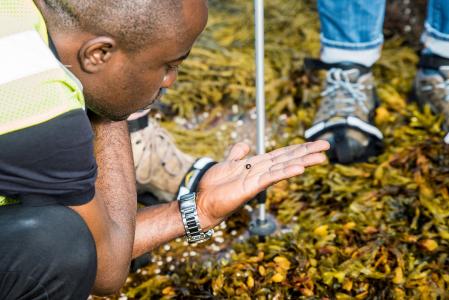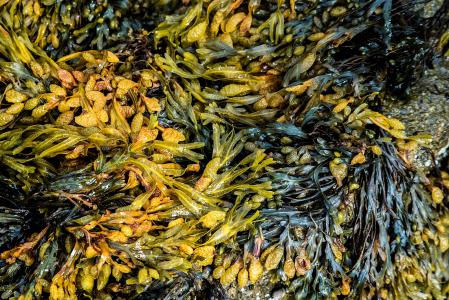Scientific Research: A ‘Labor of Love’
By Jared Biunno, Earthwatch Volunteer
What are we to do?! November 9th, 2016, the election has changed everything and with that change has come a newly invigorated assault on environmental protections and policies. After almost a year of signing online petitions, reading Washington Post articles and donating to the Sierra Club, my fight against climate change existed only in the digital sphere. That approach proved to be mentally exhausting, and so my inner voice told me to get my eyes off my laptop and out into the world. Do something practical, something you can touch, on the ground, out in the field, literally in the dirt!
Fast forward to September 10th, 2017, and I’m stepping foot in my very first national park as one of ten team members on an Earthwatch expedition – Climate Change: Sea to Trees at Acadia National Park.
I grew up in a suburban household with parents that were either too busy or too uninterested to integrate nature into our childhood. On vacations, we would go on cruises or to resorts. On sunny summer afternoons, we would go to the local pool or the crowded beach. Nature simply wasn’t part of my family’s everyday. Naturally, making first ground at Acadia National Park was like stepping into a wonderland. The air! Oh my goodness, the air. Crisp and fresh with a smell that was the most natural and pleasant aroma to ever fill my nostrils. If the first goal of my Earthwatch expedition was to enhance my appreciation of the natural world, I was off to a good start.
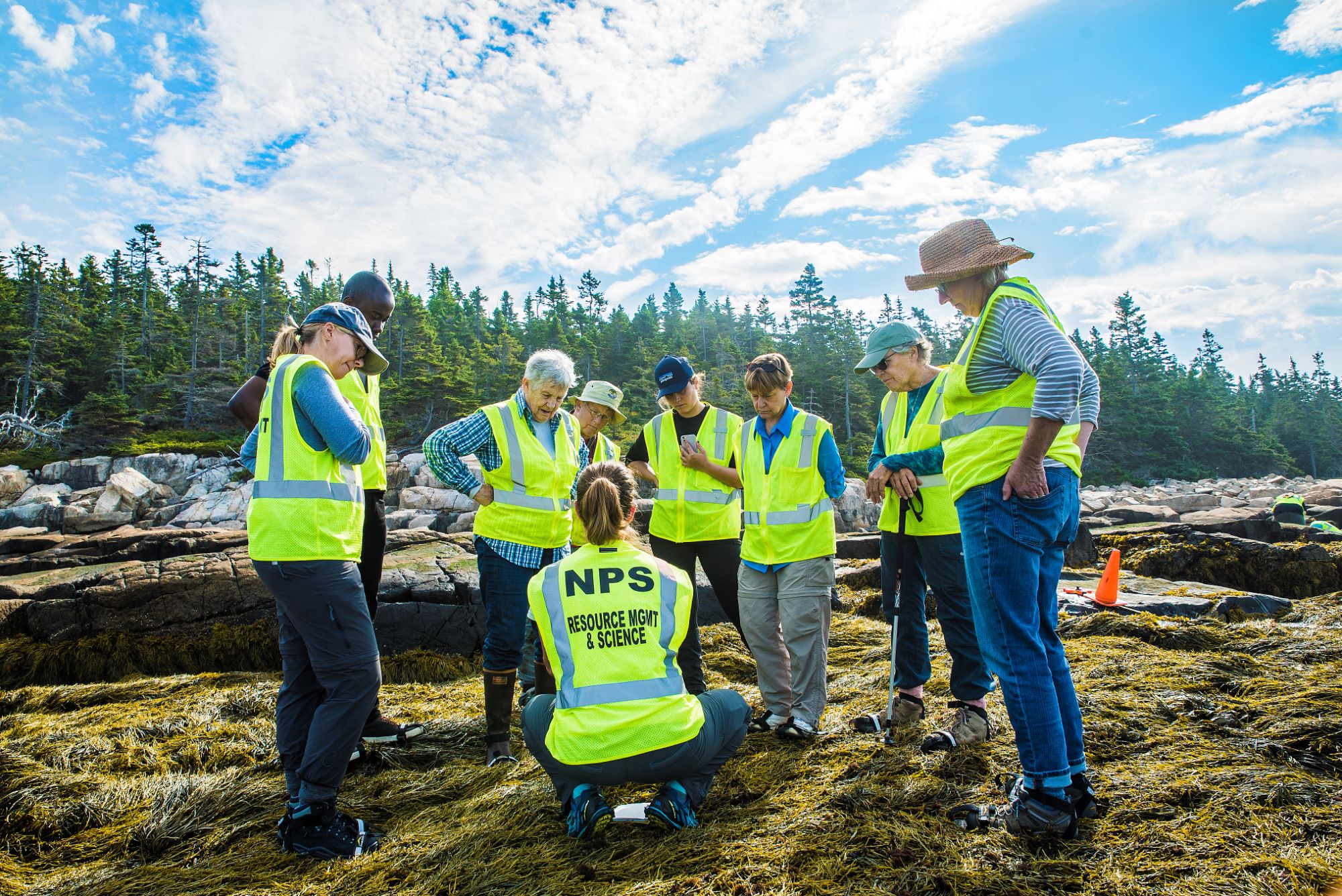
After a brief night of meeting my team and going through the program itinerary, we began the real work at the crack of dawn. Here is what I have to say about my experience during this expedition: it is real work. Hard work. It’s not a vacation, it’s not a light, relaxing getaway. We arrived out in the field and you could feel the intimidation amongst the team. At that moment we knew this was not going to be a “fun little science trip.” This was going to be rough and tough data collection, at the very least.
On my first day, I, along with some of my other team members, began to naturally complain and sigh about how rigorous and tedious our load was. We were hunched over, digging through the brush, branches whacking us in the face, counting berries and sweating from head to toe. We had a predetermined list of tasks to accomplish in a set amount of time and there was no special treatment. This was not a Carnival cruise by any means.
However, as we slowly pushed through the first day, the second day, the third day, I began to notice something. Our team of “citizen scientists” had begun to gel. Our confidence grew, our complaining subsided and we began to build efficiency in our work. I have to admit, it was a sight to behold. Here are brand marketers, a chef, a school teacher, people from all walks of life adapting and growing, developing systems and methods to execute the work faster and better. After a little while, we started to really enjoy the process through the teamwork and camaraderie. The actual work did not get any less tedious or tiresome, but the pride amongst the team continued to grow and grow. We were not going to fail! This was a group of human beings with a brash determination to finish the day with success; there was simply no other option.
We had begun to understand that this is a job of labor and love, and that being a citizen scientist was clearly a title that was earned. Slowly but surely we felt that we were earning that title.
At one point in the trip, we came to a profound realization: this is the life of a scientist. Long after we return to our office buildings and studio apartments, these scientists will continue on to the next week. And then the week after that. And throughout the years and years, they will be here, at Acadia National Park, in the forest or on the coast, researching and collecting data and studying samples and fighting climate change. We began to understand that scientists, like firefighters and astronauts and soldiers, were true American heroes.
We had a conversation amongst ourselves one night about how these men and women are dedicating their lives to this hard, gritty work and sacrificing so much all in the effort of obtaining answers to nature’s greatest questions. We wondered why someone would do this for their entire life (as our backs ached from the day’s work) and, after a moment of silence amongst the group, one of our team members said in the simplest of ways, “Someone has to.” We all silently nodded to ourselves, and at that moment we understood the significance of why we were there.
To learn more about the research being conducted, check out our expedition Climate Change: Sea to Trees at Acadia National Park.
